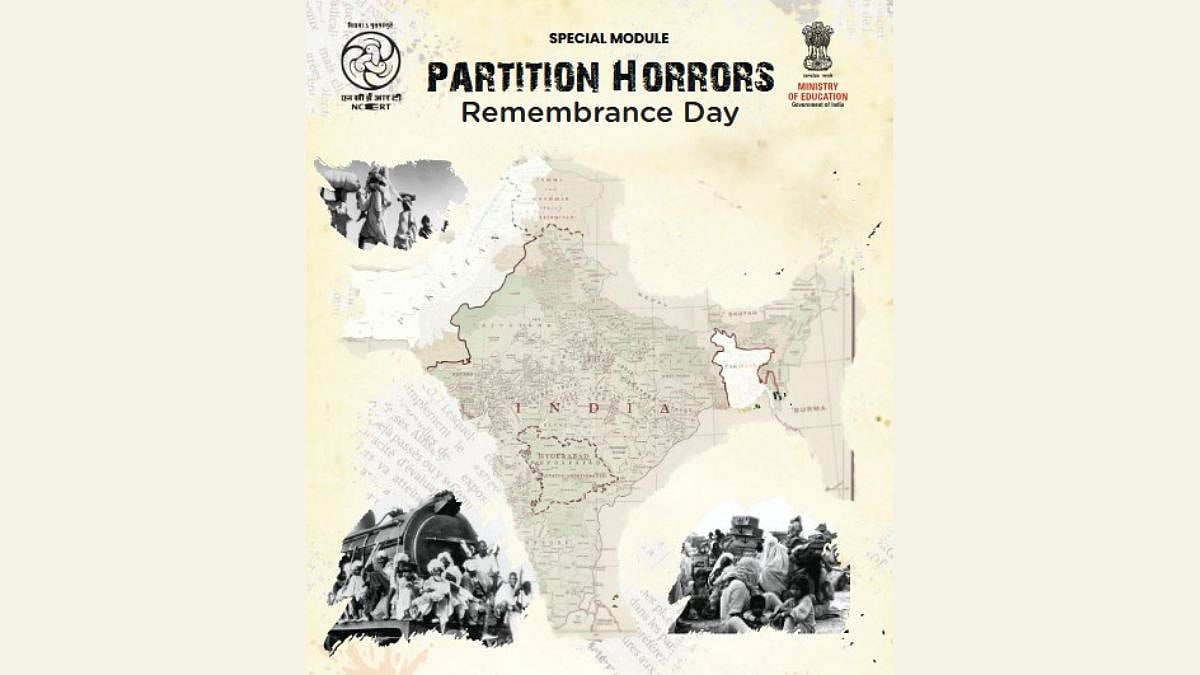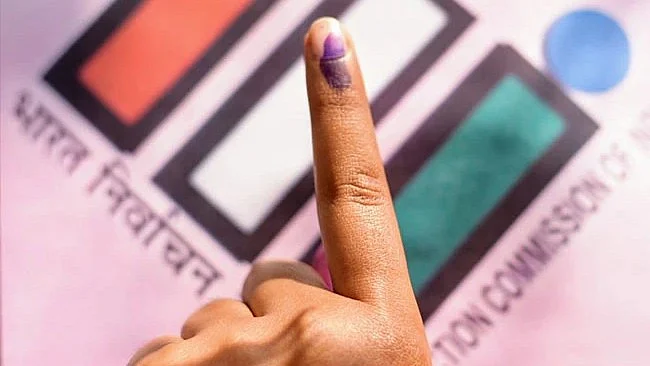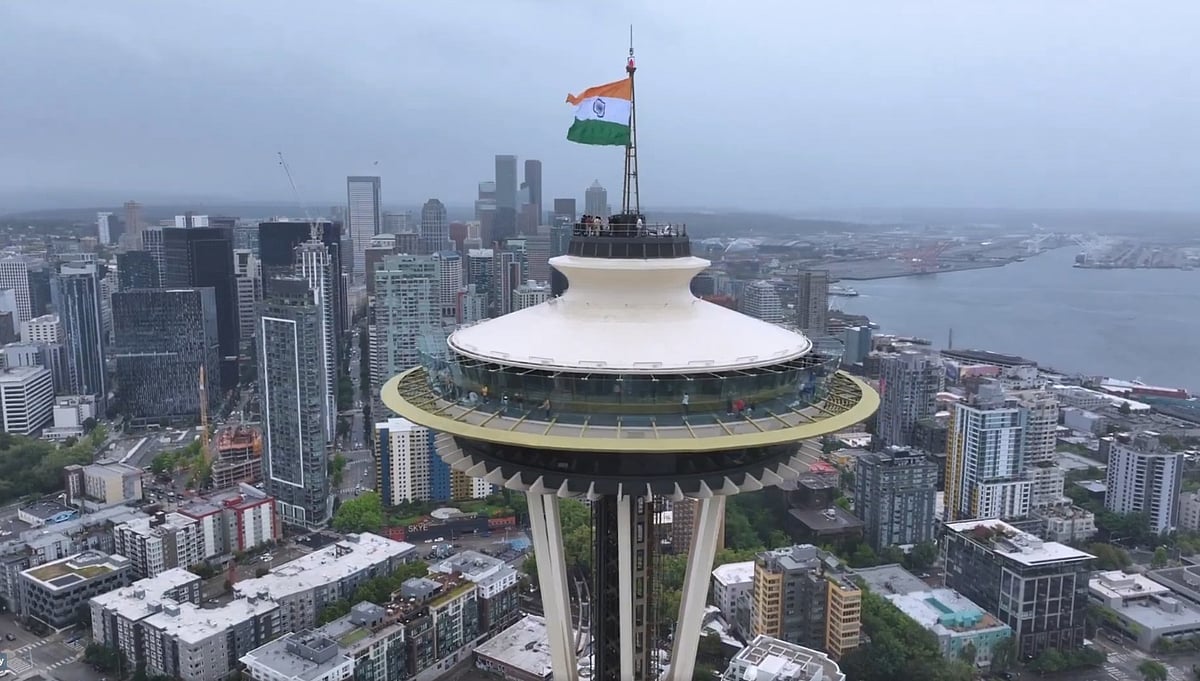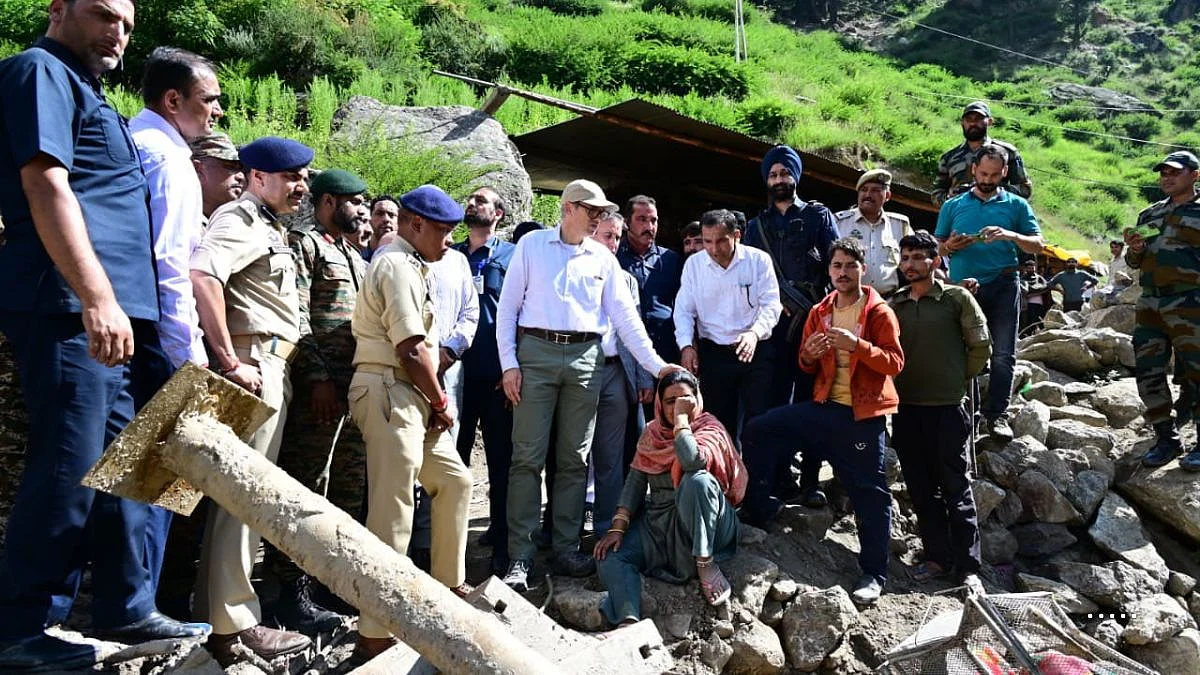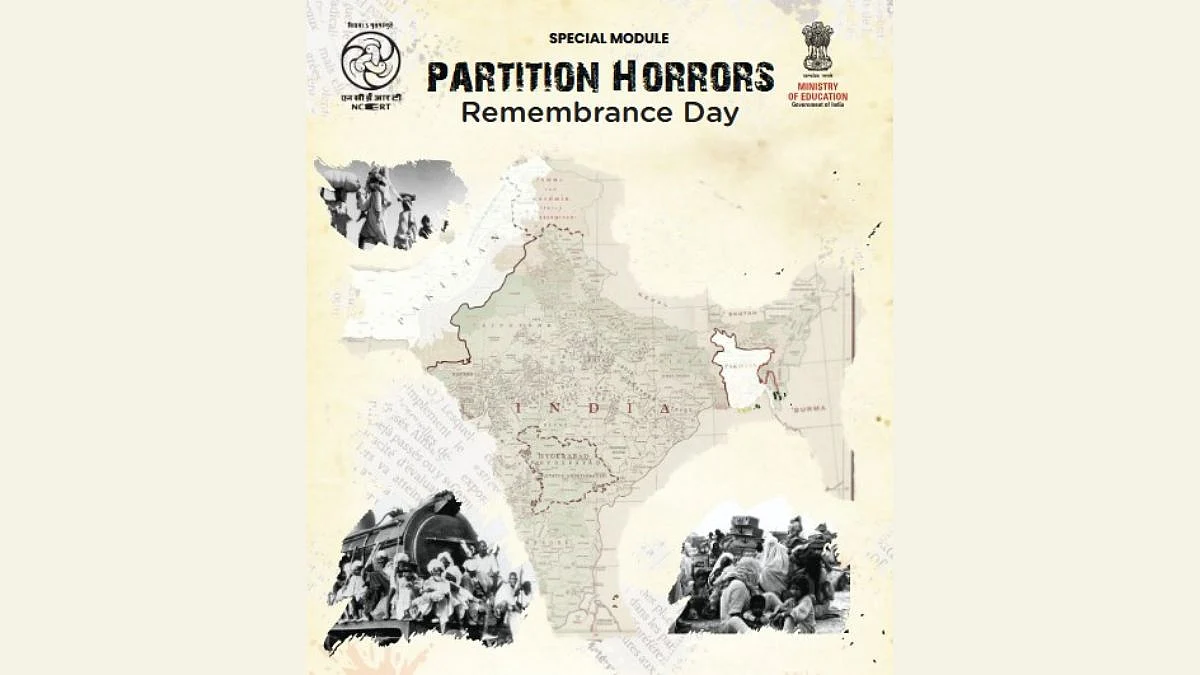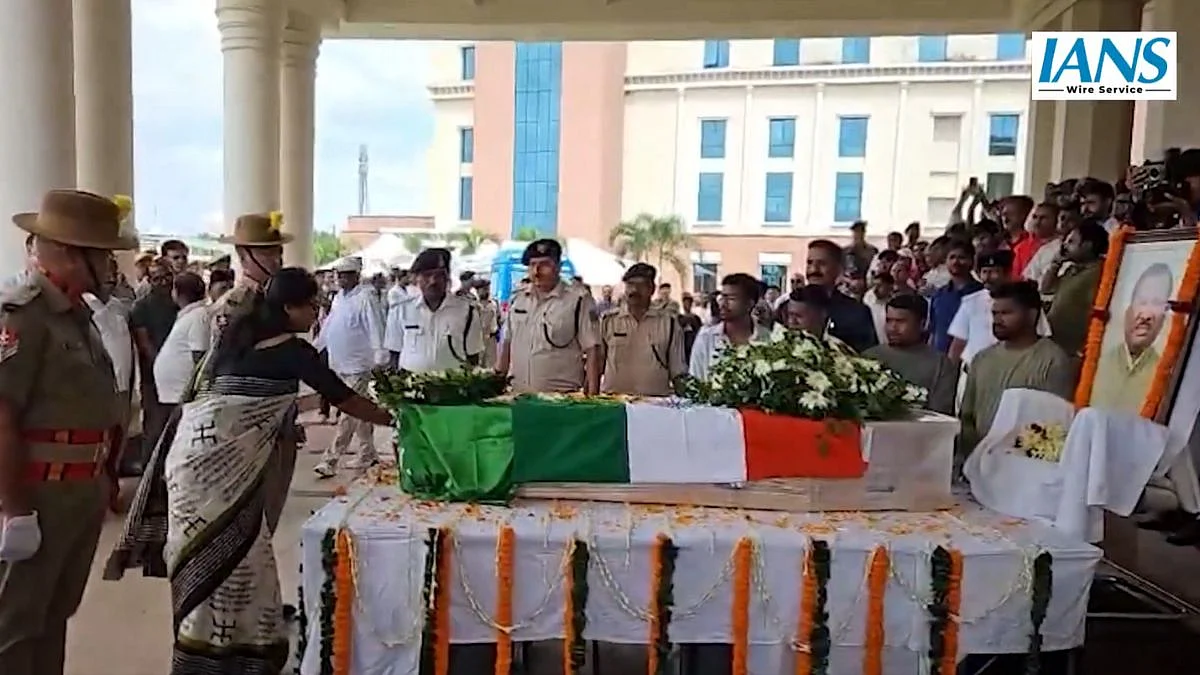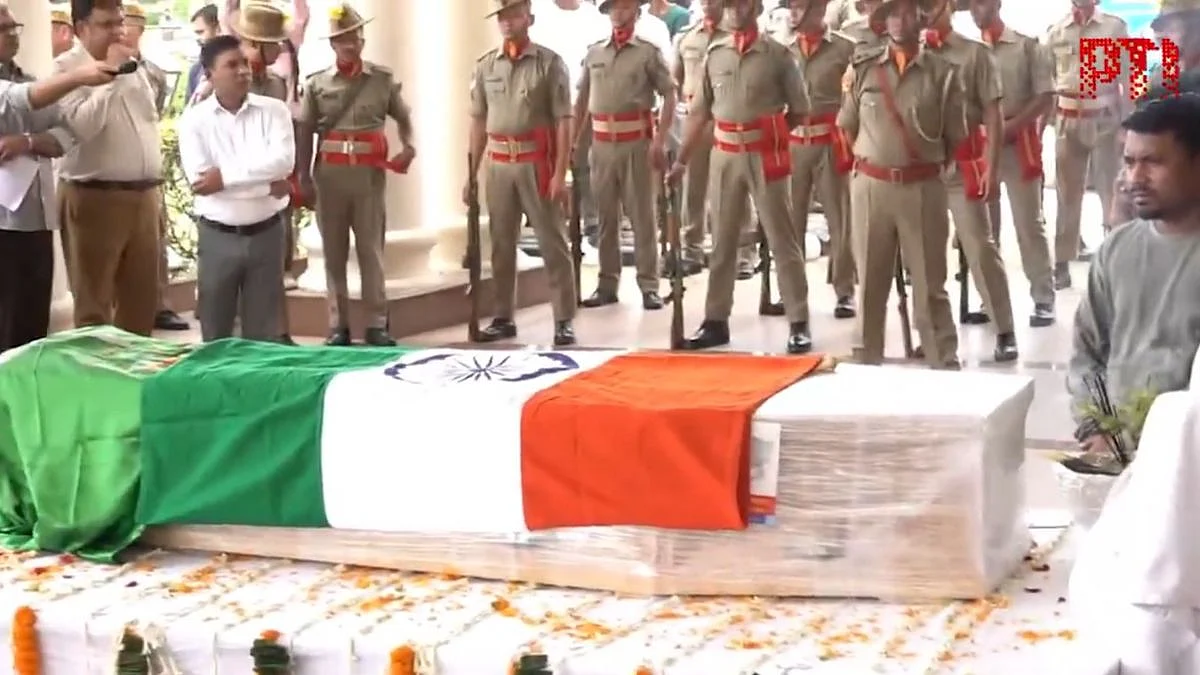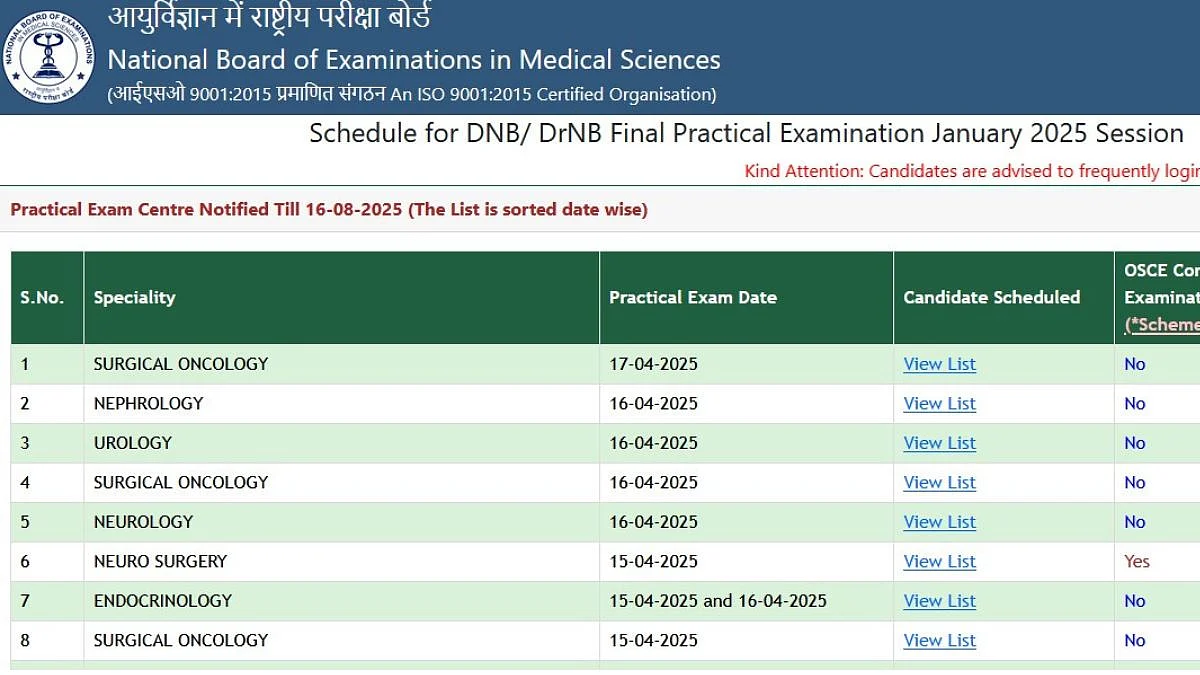To mark Partition Horrors Remembrance Day, NCERT has introduced a special educational module for schools that presents a broader perspective on the causes of India’s Partition. The content emphasises that the event was not driven by a single individual but was shaped by three key players: Muhammad Ali Jinnah, who demanded Partition; the Congress, which accepted it; and Lord Mountbatten, who implemented it.
"In this way, ultimately on 15 August 1947, India was divided. But this was not the doing of any one person. There were three elements responsible for the Partition of India: Jinnah, who demanded it; second, the Congress, which accepted it; and third, Mountbatten, who implemented it," reads the NCERT module.
The module also highlights the long-term impact of Partition, noting that it turned Kashmir into a major security issue, which, according to the text, continues to be exploited by certain foreign powers to exert geopolitical pressure on India.
Separate modules have been developed for Classes 6–8 and Classes 9–12, designed as supplementary content outside the regular textbooks.
NCERT Module Blames Mountbatten’s “Hasty” Power Transfer for Partition Chaos
The newly released NCERT module on Partition Horrors has criticised Lord Mountbatten for what it calls a “major blunder” in the handling of India’s Partition. According to the content, Mountbatten advanced the date for the transfer of power from June 1948 to August 1947, convincing all parties to agree despite inadequate preparation.
The module highlights that the Partition boundaries were drawn in haste, with Sir Cyril Radcliffe given just five weeks to demarcate them. It points out that in Punjab, even two days after August 15, 1947, millions were unsure whether they were in India or Pakistan. The text labels this hurried approach as a serious act of carelessness that contributed to the massive upheaval and confusion during the Partition.
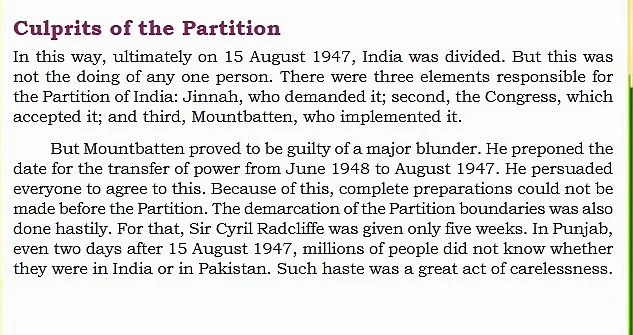
NCERT Module |
NCERT Module Highlights Jinnah’s 1940 Lahore Resolution
The module references the 1940 Lahore Resolution, where Muhammad Ali Jinnah asserted that Hindus and Muslims were fundamentally distinct, describing them as belonging to “two different villages, philosophy, social customs, and literature.”
It further claims that the British initially attempted to preserve India's unity by proposing dominion status, but the Congress rejected the proposal.
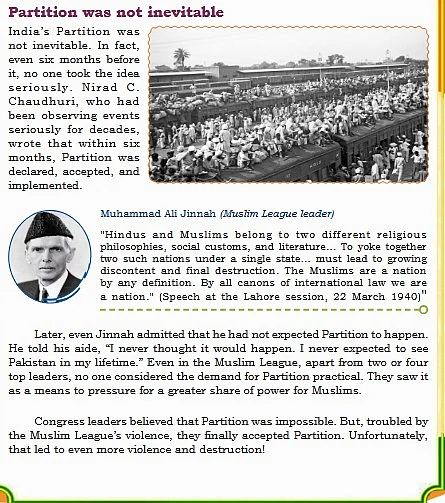
Gandhi, Patel, and Nehru on Partition: NCERT Module Highlights Diverging Stances
The NCERT module sheds light on the differing perspectives of key Congress leaders during the lead-up to Partition. Sardar Vallabhbhai Patel is quoted as saying that the situation in India had become so volatile that it was better to accept Partition than risk a full-scale civil war, describing the country as having become a “battlefield.”

On Mahatma Gandhi’s part, the module notes that while he opposed Partition, he was unwilling to resist the Congress’s decision through violence. The text quotes him as saying that he could not be a party to Partition, but would not prevent the Congress from accepting it through violent means.
Eventually, both Jawaharlal Nehru and Patel accepted the idea of Partition. The module also states that Gandhi ultimately persuaded the Congress Working Committee to agree to it on June 14, 1947, marking a turning point in the party’s stance.
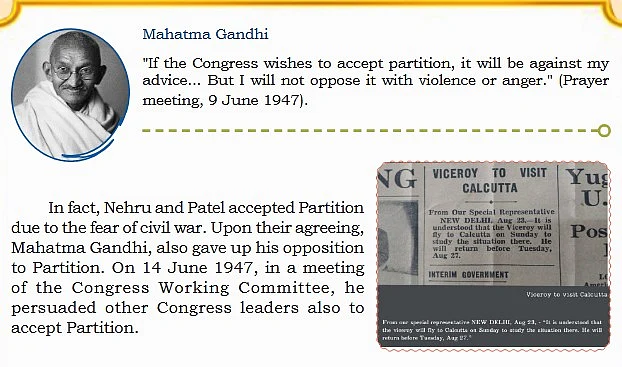
NCERT Highlights the Horrors of Partition
According to the NCERT module, the Partition of India was the largest displacement in human history, resulting in the death of over 6 lakh people due to communal violence. It states that millions were left homeless, forced to live as refugees in their own land, while women faced unimaginable atrocities, with some even choosing to end their lives to preserve their honour. The module emphasises that this was not a natural calamity, but a man-made human tragedy of unprecedented scale.
